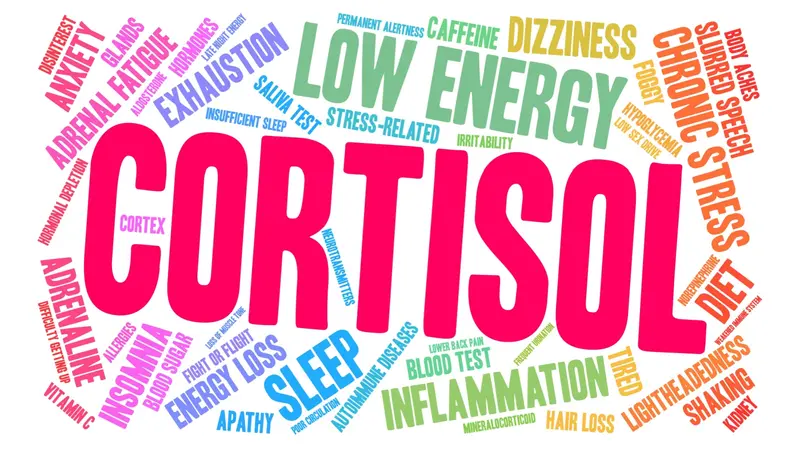

Chronic Conditions and Diseases

Chronic Conditions and Diseases
Weight Gain, Foggy Brain, and Fatigue: Could it be Cortisol?
Gaining weight, brain fog and fatigue are common symptoms that may be related to the effect of stress on hormones. Stress is not just worry or anxiety, it can be physical, chemical, or emotional. Stress is unavoidable and its impact on our hormones. Chronic stress can disrupt the delicate balance of cortisol and other hormones, which can have profound effects on health and well being.
The Stress—Cortisol Relationship
Stress triggers the release of cortisol, commonly known as the stress hormone. While cortisol serves an important purpose in the body's stress response, chronic stress can lead to persistently high cortisol levels, resulting in adverse effects:1
- Sleep Disruptions: High cortisol levels can interfere with sleep patterns, leading to difficulties falling asleep or staying asleep. Fatigue and exhaustion may follow, exacerbating the impact of stress.2
- Mood Swings and Anxiety: Elevated cortisol can contribute to mood swings, irritability, and heightened anxiety.3 Individuals may experience increased restlessness, racing thoughts, and a sense of being constantly on edge.
- Weight Gain and Cravings: High cortisol levels are associated with increased abdominal fat deposits and cravings for sugary and high-fat foods. These changes can lead to weight gain and difficulty managing a healthy diet.
- Weakened Immune System: Chronic stress and elevated cortisol levels can compromise the immune system, making individuals more susceptible to infections and illnesses.4
Action Steps
- Finding and addressing the root cause of stress is essential to managing cortisol. Perform a self-assessment and/or find a functional medicine physician to help. An assessment may include evaluating the responses to questions such as:
- Is the stress physical such as pain, heat, cold, restless legs or other physical issues?
- Is stress due to something chemical such as other hormone imbalances, toxin exposure, allergies, food sensitivities, infection, inflammation, metals, or mold?
- Is the stress emotional such as fear, worry, anxiety, depression?
- Adaptogenic herbs such as ashwagandha, schizandra, Eleuthera, holy basil, Relora may be helpful in managing cortisol levels. Only use ginseng and licorice if cortisol levels are low and blood pressure is normal. Saliva tests may be used by a practitioner to measure cortisol and determine the most beneficial adrenal formulas.
- Practice stress management techniques like deep breathing, yoga and other mindfulness techniques.
REFERENCES
1 Chrousos GP. Stress and disorders of the stress system. Nat Rev Endocrinol. 2009;5(7):374-381. doi:10.1038/nrendo.2009.106
2 Hirotsu C, Tufik S, Andersen ML. Interactions between sleep, stress, and metabolism: From physiological to pathological conditions. Sleep Sci. 2015;8(3):143-152. doi:10.1016/j.slsci.2015.09.002
3 Kumar A, Rinwa P, Kaur G, Machawal L. Stress: Neurobiology, consequences and management. J Pharm Bioallied Sci. 2013;5(2):91-97. doi:10.4103/0975-7406.111818
4 Vitlic A, Lord JM, Phillips AC. Stress, ageing and their influence on functional, cellular and molecular aspects of the immune system. Age (Dordr). 2014;36(3):9631. doi:10.1007/s11357-014-9631-6


 By
By







